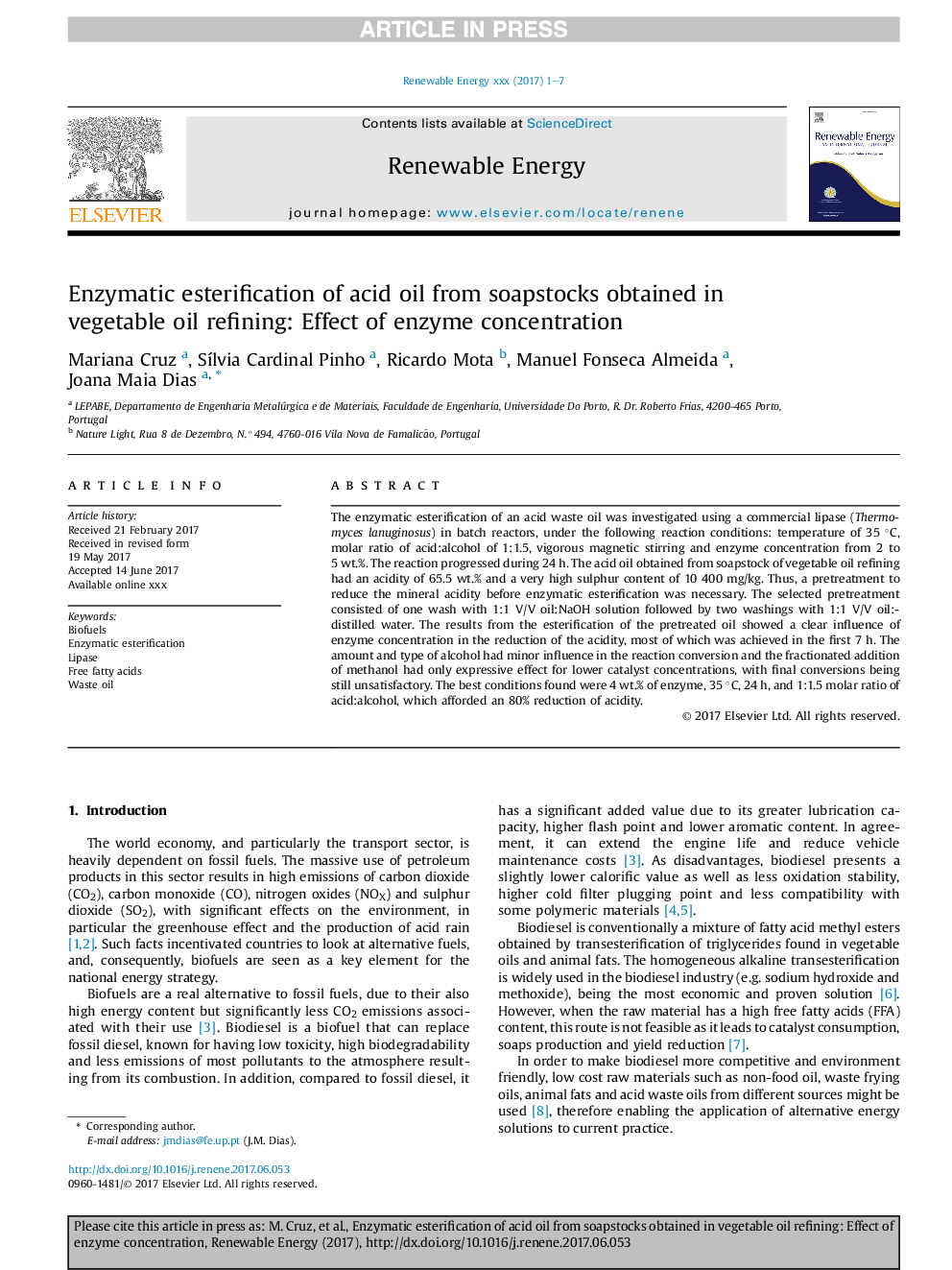| Article ID | Journal | Published Year | Pages | File Type |
|---|---|---|---|---|
| 6764456 | Renewable Energy | 2018 | 7 Pages |
Abstract
The enzymatic esterification of an acid waste oil was investigated using a commercial lipase (Thermomyces lanuginosus) in batch reactors, under the following reaction conditions: temperature of 35 °C, molar ratio of acid:alcohol of 1:1.5, vigorous magnetic stirring and enzyme concentration from 2 to 5 wt.%. The reaction progressed during 24 h. The acid oil obtained from soapstock of vegetable oil refining had an acidity of 65.5 wt.% and a very high sulphur content of 10 400 mg/kg. Thus, a pretreatment to reduce the mineral acidity before enzymatic esterification was necessary. The selected pretreatment consisted of one wash with 1:1 V/V oil:NaOH solution followed by two washings with 1:1 V/V oil:distilled water. The results from the esterification of the pretreated oil showed a clear influence of enzyme concentration in the reduction of the acidity, most of which was achieved in the first 7 h. The amount and type of alcohol had minor influence in the reaction conversion and the fractionated addition of methanol had only expressive effect for lower catalyst concentrations, with final conversions being still unsatisfactory. The best conditions found were 4 wt.% of enzyme, 35 °C, 24 h, and 1:1.5 molar ratio of acid:alcohol, which afforded an 80% reduction of acidity.
Related Topics
Physical Sciences and Engineering
Energy
Renewable Energy, Sustainability and the Environment
Authors
Mariana Cruz, SÃlvia Cardinal Pinho, Ricardo Mota, Manuel Fonseca Almeida, Joana Maia Dias,
